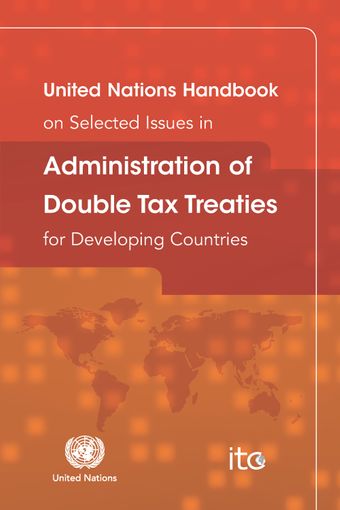- Home
- Books
- United Nations Handbook on Selected Issues in Administration of Double Tax Treaties for Developing Countries
- Chapter
Taxation of non-residents

- Author: Colin Campbell
- Main Title: United Nations Handbook on Selected Issues in Administration of Double Tax Treaties for Developing Countries , pp 173-191
- Publication Date: October 2013
- DOI: https://doi.org/10.18356/8bae41cd-en
- Language: English
This chapter considers the issues faced by developing countries where a person, who is not resident for tax purposes in a State (a non-resident) under the domestic law of that State (the source State), has activities either in, or with residents of, the source State, which attract tax liability under the tax law of that State, and is a resident of another State with which the source State has a bilateral tax treaty. For these purposes, only taxes on income addressed in tax treaties1 will be considered. The issues arising in these circumstances include determining if the non-resident is entitled to benefits under the treaty and, if so, how these benefits are delivered, whether by refunding to the non-resident amounts paid or withheld in excess of the treaty-mandated amounts, or by reducing amounts paid or withheld to reflect reduced rates of tax provided under the treaty. A further issue, unrelated to the collection of tax from non-residents, arises out of the mutual obligations contained in most, if not all, tax treaties on each contracting State to provide to the other State information relevant to the administration of the tax system of that State and, in some cases, to provide assistance in the collection of taxes.
-
From This Site
/content/books/9789210562522c013dcterms_title,dcterms_subject,pub_keyword-contentType:Journal -contentType:Contributor -contentType:Concept -contentType:Institution105

